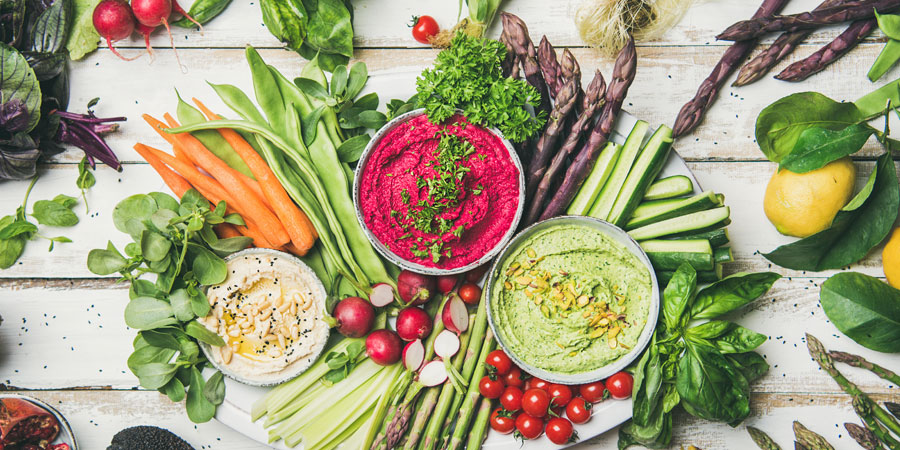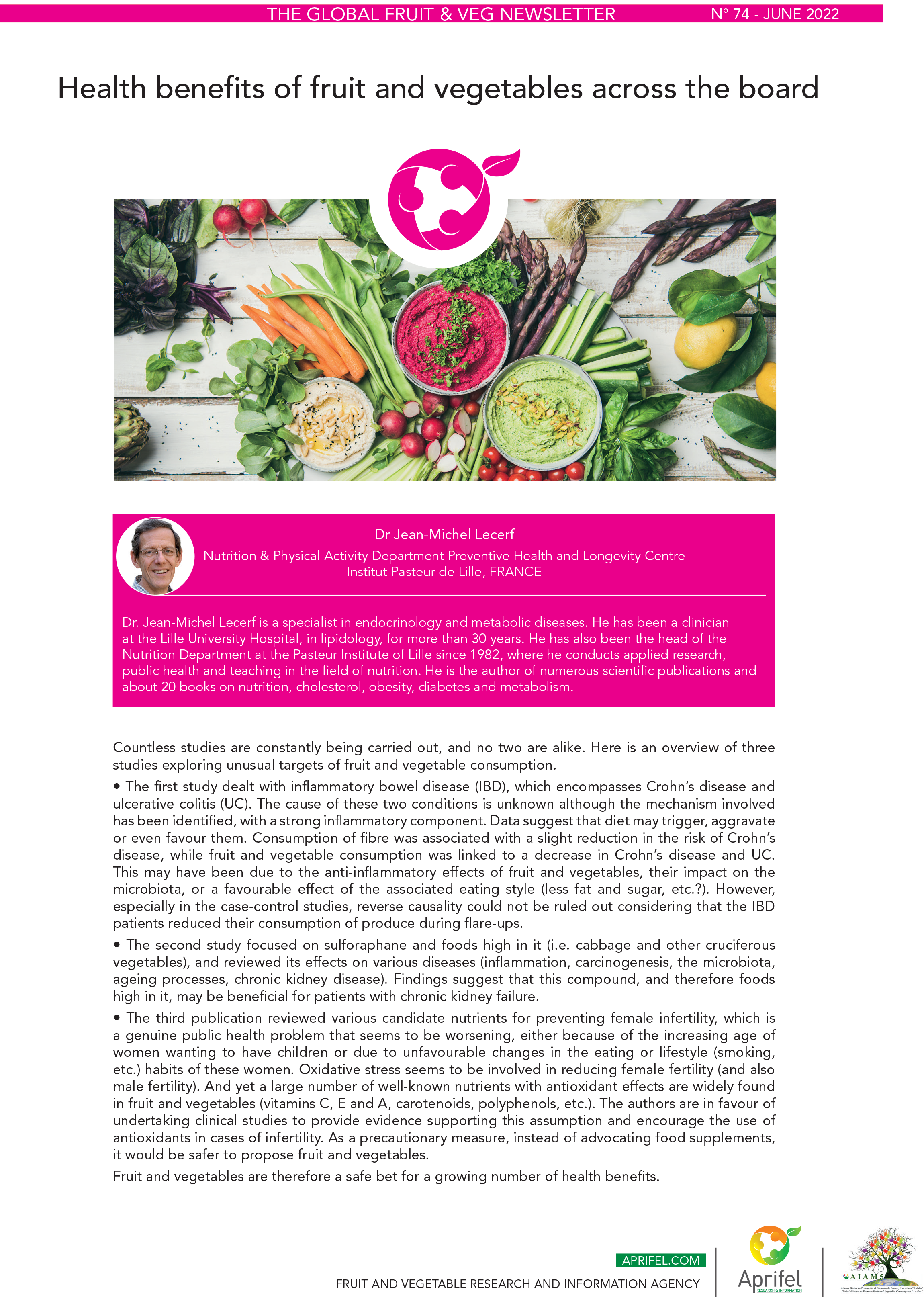Health benefits of fruit and vegetables across the board
Editorial

Countless studies are constantly being carried out, and no two are alike. Here is an overview of three studies exploring unusual targets of fruit and vegetable consumption.
- The first study dealt with inflammatory bowel disease (IBD), which encompasses Crohn’s disease and ulcerative colitis (UC). The cause of these two conditions is unknown although the mechanism involved has been identified, with a strong inflammatory component. Data suggest that diet may trigger, aggravate or even favour them. Consumption of fibre was associated with a slight reduction in the risk of Crohn’s disease, while fruit and vegetable consumption was linked to a decrease in Crohn’s disease and UC. This may have been due to the anti-inflammatory effects of fruit and vegetables, their impact on the microbiota, or a favourable effect of the associated eating style (less fat and sugar, etc.?). However, especially in the case-control studies, reverse causality could not be ruled out considering that the IBD patients reduced their consumption of produce during flare-ups.
- The second study focused on sulforaphane and foods high in it (i.e. cabbage and other cruciferous vegetables), and reviewed its effects on various diseases (inflammation, carcinogenesis, the microbiota, ageing processes, chronic kidney disease). Findings suggest that this compound, and therefore foods high in it, may be beneficial for patients with chronic kidney failure.
- The third publication reviewed various candidate nutrients for preventing female infertility, which is a genuine public health problem that seems to be worsening, either because of the increasing age of women wanting to have children or due to unfavourable changes in the eating or lifestyle (smoking, etc.) habits of these women. Oxidative stress seems to be involved in reducing female fertility (and also male fertility). And yet a large number of well-known nutrients with antioxidant effects are widely found in fruit and vegetables (vitamins C, E and A, carotenoids, polyphenols, etc.). The authors are in favour of undertaking clinical studies to provide evidence supporting this assumption and encourage the use of antioxidants in cases of infertility. As a precautionary measure, instead of advocating food supplements, it would be safer to propose fruit and vegetables.
Fruit and vegetables are therefore a safe bet for a growing number of health benefits.
Dr. Jean-Michel Lecerf is a specialist in endocrinology and metabolic diseases. He has been a clinician at the Lille University Hospital, in lipidology, for more than 30 years. He has also been the head of the Nutrition Department at the Pasteur Institute of Lille since 1982, where he conducts applied research, public health and teaching in the field of nutrition. He is the author of numerous scientific publications and about 20 books on nutrition, cholesterol, obesity, diabetes, and metabolism.

